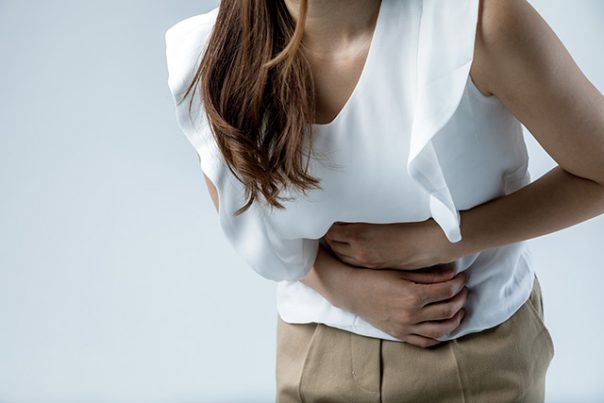
Microsporidiosis – causes, side effects and treatments at NaturalPedia.com
Thursday, May 17, 2018 by Zoey Sky
http://www.naturalpedia.com/microsporidiosis-causes-side-effects-and-treatments-at-naturalpedia-com.html

Microsporidiosis refers to an intestinal infection caused by small parasites called Microsporidia.
Microsporidia usually don’t affect healthy individuals, but they can cause disease among people with suppressed immune function.
The infection can cause intestinal problems. Microsporidiosis can also cause sinus and eye infections. The symptoms that affect patients with the condition usually depend on the infected area of the body.
Microsporidia spores are released from respiratory secretions, the stool, and urine of infected animals such as birds, insects, and mammals. Human hosts can also release spores.
While it remains unknown how the parasite is transmitted among humans, it is possible that it is spread via the ingestion or inhalation of the spores.

Known side effects of microsporidiosis
The side effects of microsporidiosis often manifest in patients with an immune system deficiency like HIV and organ-transplant recipients.
Microsporidiosis can cause brain, eye, intestinal, kidney, lung, muscle, or sinus disease.
Intestinal side effects caused by microsporidia infection may include:
- Chronic diarrhea
- Gallbladder disease
- Malabsorption
- Wasting
In patients with AIDS, chronic diarrhea can be severely debilitating. Chronic diarrhea among AIDS patients with the condition is linked to a significant mortality/death risk. Most cases of intestinal microsporidiosis in AIDS patients are caused by Enterocytozoon bieneusi.
Microsporidiosis may also cause:
- Bladder inflammation
- Bowel perforation
- Infection in the urinary tract
- Kidney failure
Lung symptoms of microsporidiosis may include a cough and difficult/labored breathing. A chest X-ray can detect cavities, fluid, or inflammation in the lungs.
Eye infection due to microsporidiosis may cause inflammation of the cornea and conjunctiva/keratoconjunctivitis. Symptoms of ocular microsporidiosis often include:
- Blurry vision
- Eye pain
- Eye redness
The major risk factor for microsporidiosis is immunodeficiency. Those most at risk of developing the condition include:
- Diabetics
- Organ-transplant recipients
- People chronically on steroids
Body systems harmed by microsporidiosis
Microsporidiosis may affect organs like the brain, kidneys, and liver and cause complications like blindness and severe damage to infected organ systems (due to delayed treatment).
Severe organ failure due to these complications may be fatal.
Food items or nutrients that may prevent microsporidiosis
The following foods or nutrients can help prevent microsporidiosis:
- Cayenne – Cayenne is a potent anti-fungal.
- Clove – Cloves contains eugenol, the “most powerful germicidal agent in the herbal kingdom.”
- Cucumber seeds – Cucumber seeds can help remove tapeworms within the digestive tract.
- Garlic – Garlic can slow down and eliminate more than 60 types of fungus and 20 types of bacteria, along with some potent viruses.
- Ginger – Ginger can boost circulation and strengthen all digestive issues.
- Papaya – Papaya can destroy various parasitic worms such as most intestinal worms and tapeworms.
- Raw pumpkin seeds – Raw pumpkin seeds can kill parasitic eggs, and they also contain a natural fat that is toxic to parasite eggs.
- Turmeric – Turmeric is a potent “anticancer, anti-inflammatory, wound-healing, worm-expelling, and an overall body purifier.”
Treatments, management plans for microsporidiosis
Treatment for microsporidiosis includes medications and supportive care.
The treatments for the disease usually depends on the where the infection is located and the microsporidia species that caused the infection. The medications for microsporidiosis often includes albendazole (Albenza) and fumagillin.
Patients with diarrhea and dehydration may need intravenous fluid administration and electrolyte repletion. Individuals with chronic diarrhea may benefit from dietary and nutritional regimens.
Patients with HIV may need antiretroviral therapy to boost their immune system.
Where to learn more
- 10 Symptoms Your Body Have Parasites and how to remove them
- Cleanse your system of parasites naturally
- How to Avoid Health Harming Parasites
- Natural Remedies for Treating Parasites
- We All Have Parasites: Symptoms, Cleanses, and 10 Foods That Prevent
Summary
Microsporidiosis refers to an intestinal infection caused by small parasites called microsporidia.
The side effects of microsporidiosis may include bladder inflammation, bowel perforation, infection in the urinary tract, and kidney failure.
Microsporidiosis may cause complications in the brain, kidneys, and liver. Severe organ failure due to these complications may be fatal.
Cayenne, clove, cucumber seeds, garlic, papaya, raw pumpkin seeds, and turmeric can help prevent microsporidiosis.
Treatment for microsporidiosis includes medications and supportive care.
Sources include
Tagged Under: Tags: microsporidiosis





